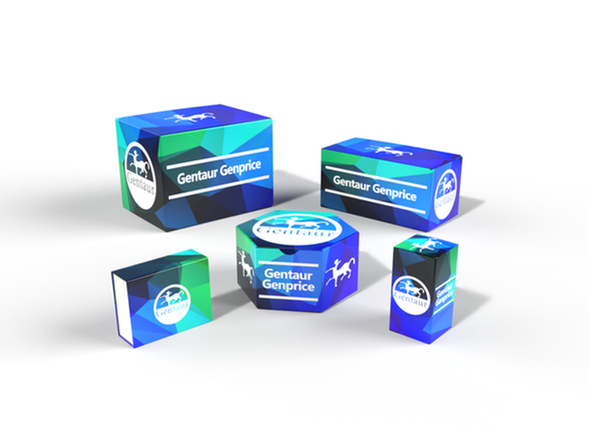Description
EMX2 Antibody | 4099 | Gentaur UK, US & Europe Distribution
Host: Rabbit
Reactivity: Human
Homology: Predicted species reactivity based on immunogen sequence: Mouse: (94%) , Bovine: (94%)
Immunogen: EMX2 antibody was raised against an 16 amino acid synthetic peptide near the amino terminus of human EMX2.
The immunogen is located within the first 50 amino acids of EMX2.
Research Area: Stem Cell
Tested Application: E, IHC-P
Application: EMX2 antibody can be used for detection of EMX2 by immunohistochemistry at 5 μg/mL.
Antibody validated: Immunohistochemistry in human samples. All other applications and species not yet tested.
Specificiy: At least two isoforms of EMX2 are known to exist; this antibody will detect both isoforms. EMX2 antibody is predicted to not cross-react with EMX1.
Positive Control 1: Cat. No. 10-635 - Human Prostate Tissue Slide
Positive Control 2: N/A
Positive Control 3: N/A
Positive Control 4: N/A
Positive Control 5: N/A
Positive Control 6: N/A
Molecular Weight: 28 kDa
Validation: N/A
Isoform: N/A
Purification: EMX2 Antibody is affinity chromatography purified via peptide column.
Clonality: Polyclonal
Clone: N/A
Isotype: IgG
Conjugate: Unconjugated
Physical State: Liquid
Buffer: EMX2 Antibody is supplied in PBS containing 0.02% sodium azide.
Concentration: 1 mg/mL
Storage Condition: EMX2 antibody can be stored at 4˚C for three months and -20˚C, stable for up to one year. As with all antibodies care should be taken to avoid repeated freeze thaw cycles. Antibodies should not be exposed to prolonged high temperatures.
Alternate Name: EMX2 Antibody: Homeobox protein EMX2, Empty spiracles homolog 2
User Note: Optimal dilutions for each application to be determined by the researcher.
BACKGROUND: EMX2 Antibody: EMX2, like its closely related homolog EMX1, is a homeobox transcription factor involved in specifying cell fates in the developing central nervous system and participates in the development of olfactory neurons. EMX2 is expressed in the dorsal telencephalon during development in a low rostral-lateral to high caudal-medial gradient and is proposed to pattern the neocortex into defined functional areas. It is also expressed in embryonic and adult olfactory neuroepithelia where it complexes with eukaryotic translation initiation factor 4E (eIF4E) and possibly regulates mRNA transport or translation. In the developing urogenital system, it is expressed in epithelial tissues and is negatively regulated by HOXA10.






